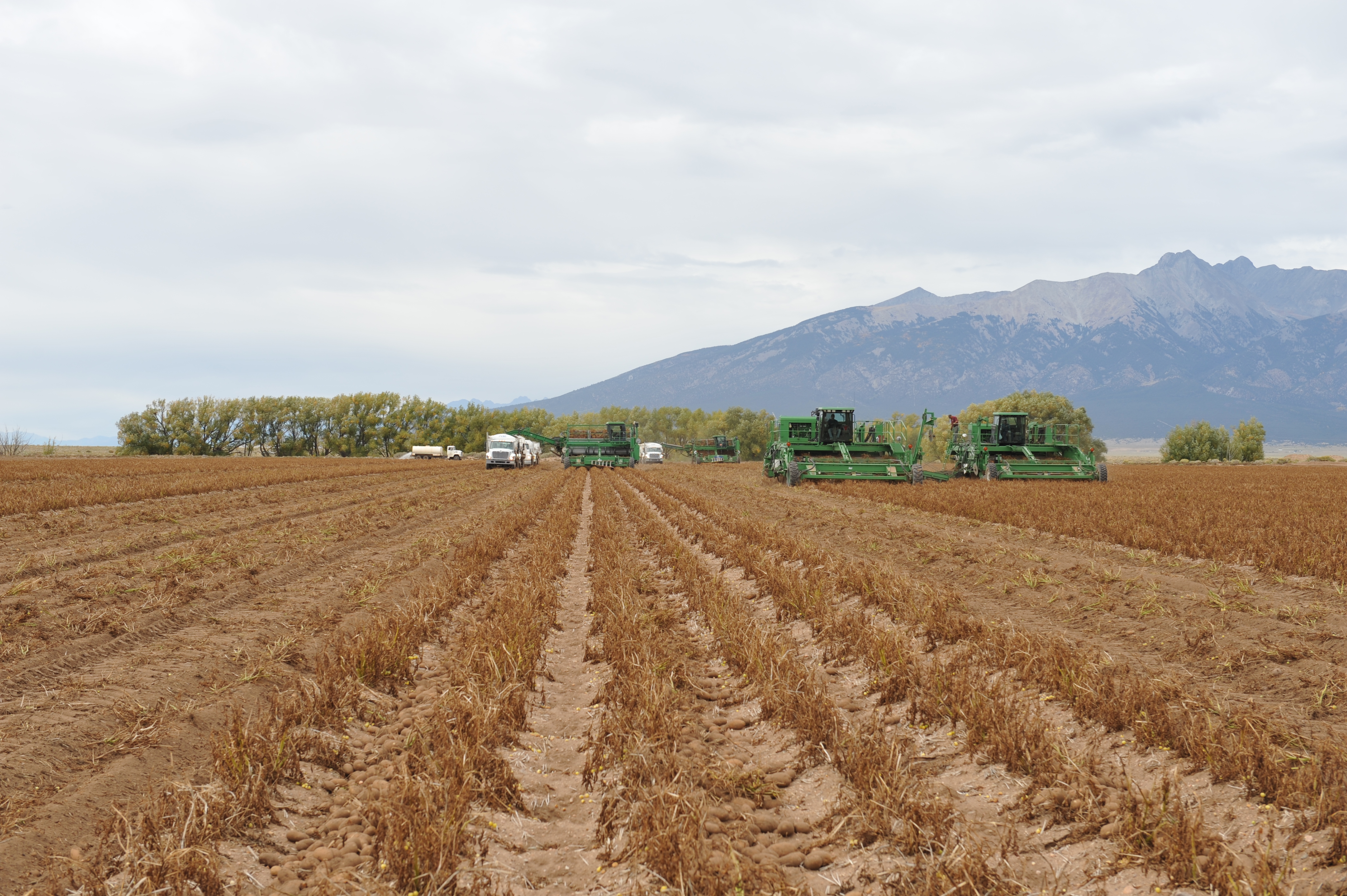This article appears in the August 2018 issue of Potato Grower.
Three S Ranch of Blanca, Colo., harvests nearly 880,000 hundredweight of potatoes yearly, and they have no plans of slowing down. In fact, they hope to increase those numbers. Jared Smith, the youngest of Three S’s three operators, says the ranch has always known commercial potatoes. Now they are adding seed potatoes to their business plan.
Three S Ranch has been around since 1917, when Smith’s great-grandfather, E.F. Smith, an educator, made the 180-mile trip from Minturn, Colo., to buy a parcel of land in Blanca at 50 cents an acre. Starting with cattle, the ranch eventually moved over to crop production; their first potato crop was harvested in 1979. Today, the ranch grows barley, wheat and dairy hay along with its potatoes.
 Smith’s father and grandfather bought into Blanca Potato, a packing company and warehouse that ships 10 to 30 semi-truck loads of potatoes out of the warehouse daily and is the largest employer in Blanca.
Smith’s father and grandfather bought into Blanca Potato, a packing company and warehouse that ships 10 to 30 semi-truck loads of potatoes out of the warehouse daily and is the largest employer in Blanca.
“High-quality, low-disease seed is appealing to me,” Smith says. “Working with seed, we are now able to manage and store our seed from beginning to end, and there will be a lot of advantages. I think we will prove that this coming year.”
Three S Ranch recently bought into growing seed potatoes alongside Salazar Farms and Price Farms, two entities that have years of experience in the seed industry.
Leroy Salazar of Salazar farms in San Acacio, Colo., has been growing seed for years, and Three S Ranch had the opportunity to buy land he was leasing. Salazar needed partners and approached Three S Ranch’s owners, Jared and Monty Smith and Cole Wakasugi.
“It’s interesting to us because we’ve been customers for years but were never involved in growing seed,” says Jared Smith. “This was an opportunity to get involved with someone who already knows the ins and outs of the seed industry. On top of that, it allows us to vertically integrate and create a consistent, clean seed supply.”
Smith also mentioned increased disease pressure across the country and in the San Luis Valley, in which 55,000 acres of potatoes are grown annually. One disease many growers struggle with is PVY, which is spread by aphids. Neighboring fields of the source of disease make it easy to spread. With its new seed growing addition, Three S Ranch has the opportunity to move 20 miles away from the nearest potato field and have an isolated seed supply. Smith believes the best way to avoid PVY is to plant seeds with a low amount of the disease from the start.
“We think we have an opportunity to provide high-quality seed to the entire valley and maybe beyond,” Smith says.
On the commercial potato side, there has been little room to grow because of lower demand. For years, organizations like United Potato Growers of America have been asking for acreage reduction across country. The intent for Three S Ranch is to get into niche markets or come up with ways to increase yield.
“It’s a necessity to touch on those growing markets within a shrinking one,” Smith says. “We want to focus on technology as well, especially concerning efficiency and storage.”
As a young farmer, Smith has noticed that embracing new ideas and mixing them with old is easier for him than it might be for older growers. He is president of the Blanca Potato Board, and his education at Colorado State University in finance has made him financial controller of the ranch.
Three S Ranch has a long-term vision to be the premier seed store in the San Luis Valley, and it appears that collaboration and technology are helping them get there.